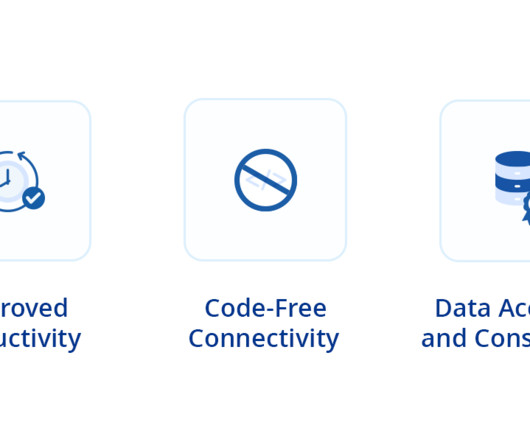6 Data And Analytics Trends To Prepare For In 2020
Smart Data Collective
MAY 20, 2019
There are many reasons why data is being generated so quickly — doubling in size every two years. The birth of IoT and connected devices is just one source, while the need for more reliable real-time data is another. They specifically help shape the industry, altering how business analysts work with data.

















Let's personalize your content